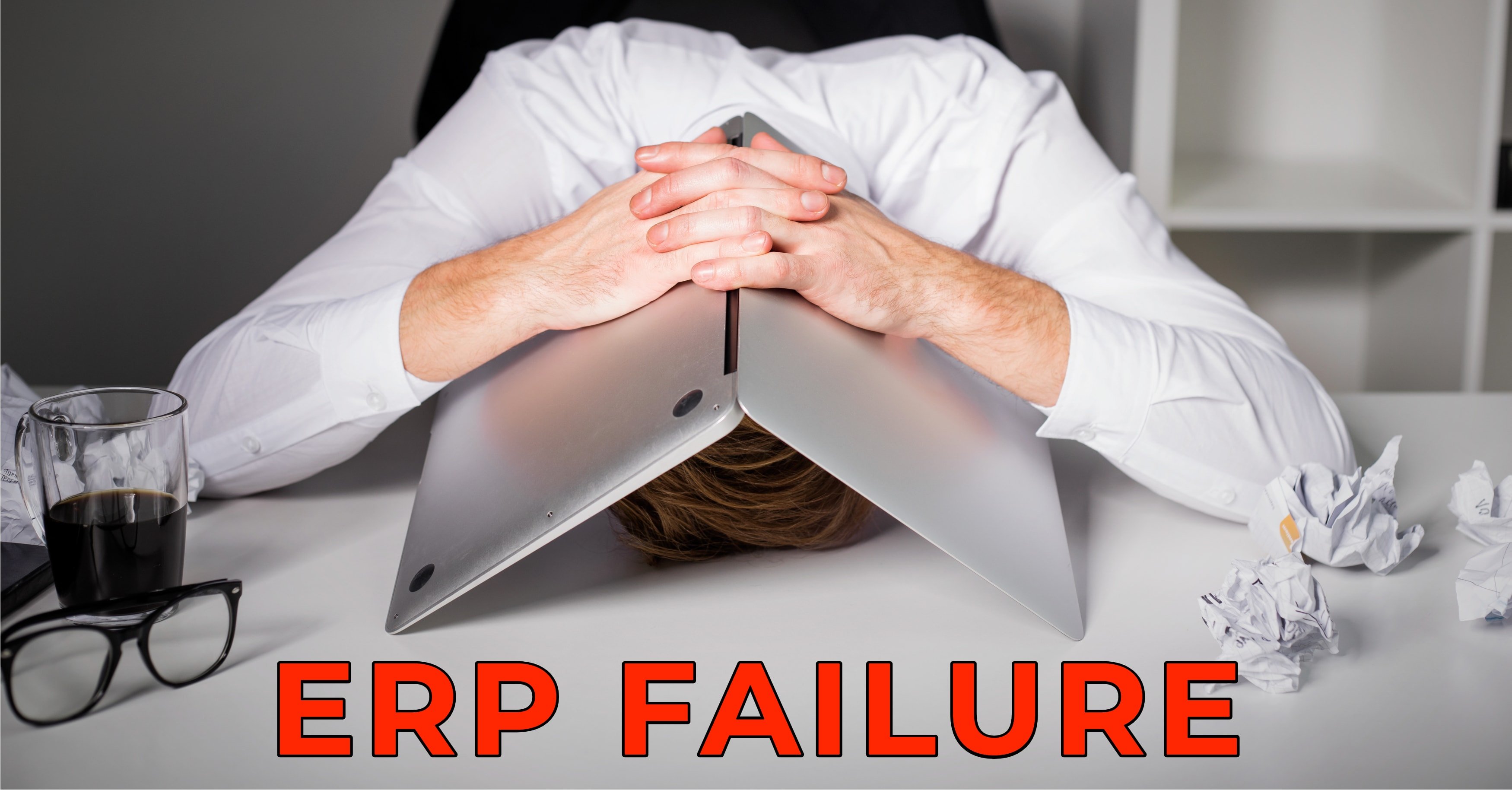Don’t Be a Victim of ERP Failure
In one of our recent posts, we pointed out that 64% of ERP projects go over budget, and 74% take longer than expected. However, after their ERP software has been implemented, 95% of businesses experience improvements across some or all their processes. This proves that ERP adds value to enterprises, but how can businesses gain the advantages of ERP without draining their resources or even, in the most extreme cases, risking all-out failure?
When ERP implementations fail, there’s a set of culprits that are usually to blame. Below, we give you five of the biggest causes of ERP failure and how to steer clear of these mishaps.
1. Lack of Executive Support
In far too many cases, executives aren’t fully on board with the ERP implementation. They might not be convinced of the effectiveness of the software or aware of what it takes to execute the project. This creates major obstacles to reaching the go-live date. The C-Suite oversees the financing of the implementation and establishes the direction of the project. When executives are on your side, it’s much easier to get the entire organization behind the new software.
The best way to earn C-Suite support is to demonstrate the value that your ERP system will bring to the company. Create a compelling business case by estimating ROI and pointing out how the software will improve processes and customer experiences. If any ERP requirements change, keep stakeholders and the C-Suite informed and get their approval for budget modifications. When executives are informed of software benefits and the project’s progress, they’ll help you steer the implementation to success.
2. Ill-Defined Goals
Projects veer wildly off track without clearly defined goals. How can you expect to find the right solution and tailor it to your business if you don’t understand your company’s current pain points and needed improvements? When you don’t establish project goals, you put your business at risk of investing in the wrong software, experiencing scope creep or skipping essential tasks in your ERP implementation.
That’s why business process modeling should serve as one of the first steps in your project. Business process modeling gives you the opportunity to dig deeply into your operations. The activity entails mapping current workflows to help you see where you’re performing well and where you’re falling short. With a visualization of your processes, you can determine where improvements need to be made. Then, diagram new workflows that can be mapped to your ERP software. This task enables you to prioritize implementation requirements and effectively automate processes.
3. Poor Teamwork
It isn’t just the IT department that should be working on the implementation. ERP software impacts the entire organization, meaning decision makers from other departments should be deeply involved to ensure the solution supports processes and functional requirements.
However, it can be difficult to get the entire team on the same page. IT personnel might struggle to grasp business operations, while the rest of the team might not understand technical concerns. This miscommunication can result in confusion and frustration within your project team, as well as an implementation that falls short of expectations.
Clear project roles and regular communication can go a long way to strengthening teamwork. At the project kick-off, make sure everyone understands their responsibilities and how to report issues. Schedule frequent meetings for the entire team to get updates on everyone’s progress. Document and share any goals or changes to keep everyone informed. Additionally, select a project leader who can manage communication between stakeholders and each team member. Doing all this can help your team stay together and understand the technical and functional sides of the implementation.
4. No End-User Involvement
In many cases, the people who will actually be using the software don’t have a say in its implementation. When users aren’t kept in the loop, they feel as though the rug’s been pulled from under their feet once the system goes live. Not surprisingly, they aren’t so keen to learn how to use the software under these circumstances.
To promote widespread user adoption, inform employees of the project from the beginning. Explain how ERP will make their day-to-day tasks easier and give them greater insight. Seek out their input, asking about their current issues and what improvements they’d like to see with the new software. Most importantly, provide relevant training to ensure everyone understands the functions they’ll be using every day.
5. Unprepared Project Team
Does anyone in your office have extensive experience with ERP customization, data migration, software testing and rolling out modules? Many small to midsize businesses have little to no IT personnel, meaning they don’t have the expertise necessary to pull off software projects. Even if you do have a sizable IT team, does it really have the time to fully commit to an ERP implementation, or a complete understanding of the new solution?
The top ERP consultants have decades of experience with software projects and multiple industries. Furthermore, they’re certified experts in specific platforms and vendors. Using a proven methodology and ERP best practices, consultants will smoothly guide you through each stage of the implementation. They know how to align your solution with your unique processes to maximize the value of your investment.
Wrap Up
Don’t be discouraged by ERP failure stories or statistics. Consultants have the expertise to mitigate risk and ensure that your implementation doesn’t fall victim to common pitfalls. That’s especially true of the consultants at Datix. A certified Epicor partner, we have provided premier ERP solutions and services for over 20 years. Our consultants have experience in multiple manufacturing and distribution environments, equipping us with the skills to meet the needs of each client. From start to finish, we do whatever it takes to help you transform your business with software.
Make your ERP implementation a success! Reach out to Datix today to get started.
{{cta(‘770c1544-d87d-4acb-9fc4-7a25e1385094′,’justifycenter’)}}


